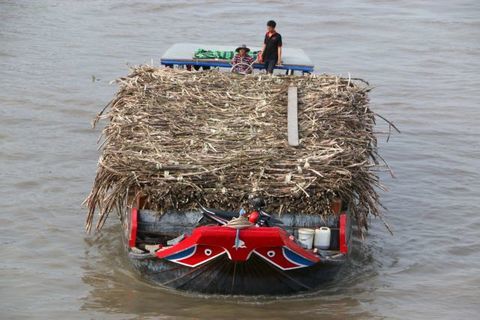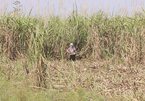 |
|
Farmers in Hau Giang Province transport sugar cane after harvesting. |
At the Cabinet meeting in Ha Noi, the Ministry of Agriculture and Rural Development reported that the sugar and sugarcane industry are suffering numerous difficulties.
In the 2018-19 crop, 17 of 38 firms faced the risk of losing equity. Prices of sugarcane material declined by VND100,000–200,000 per tonne to VND700,000–800,000 per tonne, equivalent to production costs. Meanwhile, seven sugar mills have suspended operations, and only four or five factories are running effectively.
On January 1 this year, Viet Nam removed the tariff rate quota on sugar imports under the ASEAN Trade in Goods Agreement (ATIGA). Many countries around the world have also provided price subsidies for this commodity, so sugar import prices are very cheap. Meanwhile, Vietnamese businesses almost do not have any markets to export sugar to due to other countries’ protectionist policies, according to the ministry.
PM Phuc said the sugar industry had yet to be drastic enough in re-organising itself amid the country’s intensive integration into the world.
He noted Viet Nam was a member of not only ATIGA but also 12 other free trade agreements. Additionally, climate change has resulted in a drought in sugarcane farming areas, regulations on sugar imports remain unsuitable and the sector’s restructuring and sci-tech application have yet to come to fruition, not to mention the problem of trade fraud.
The sector needed to be well aware of these challenges to align production with the market, he said, believing that development for the sugar sector was still ahead if it can carry out effective re-organisation.
This year, the world’s sugar industry might contract while sugar demand and prices might increase. This was an opportunity for the Vietnamese sector to restructure, the PM noted.
He suggested domestic businesses find development chances in by-products to produce electricity, plywood, ethanol and fertiliser to create more added value.
The Government leader stressed the sugar industry must be ready to compete, asking businesses to restructure and accept being eliminated if they perform poorly.
The State would have support measures, but it wouldn't subsidise the sugar industry. The sector must compete fairly amid international integration, PM Phuc said.
At the meeting, he agreed on the Viet Nam Sugarcane and Sugar Association’s proposal to assign agencies to carry out trade remedies that don’t run counter to international rules to fight the dumping of sugar products while enhancing the fight against sugar smuggling and trade fraud. — VNS

New shock for Vietnamese farmers from 2019-2020 sugarcane crop
The weaknesses of the domestic sugar industry and the negative impact from the world sugar market may cause the industry to suffer a new "shock" when ATIGA (ASEAN Trade in Goods Agreement) comes into force.

Local sugar firms concerned by reduced import tariffs under ATIGA
Domestic sugar companies are worried about losses in the local market as the ASEAN Trade in Goods Agreement (ATIGA) will lower the tax rates for sugar imports from ASEAN markets to only 0%-5% on January 1 next year.
 The sugar industry will have greater development opportunities if it can re-organise itself more effectively, Prime Minister Nguyen Xuan Phuc said at a meeting on Tuesday.
The sugar industry will have greater development opportunities if it can re-organise itself more effectively, Prime Minister Nguyen Xuan Phuc said at a meeting on Tuesday.